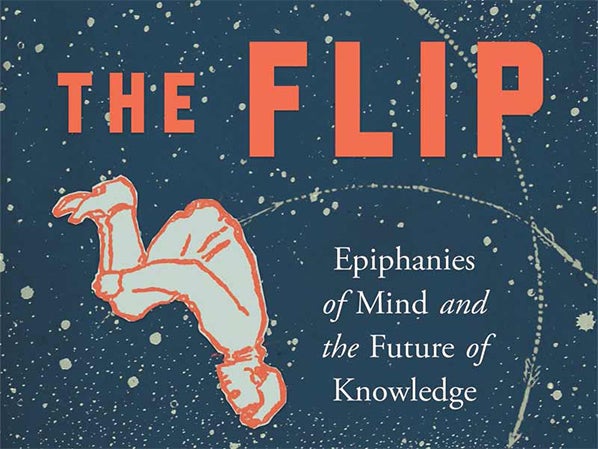Reviewed by StanislavPanin, Department of Religion
The Flip: Epiphanies of Mind and the Future of Knowledge by Jeffrey J. Kripal, J. Newton Rayzor Professor of Religion at Rice University, is written primarily for general audiences interested in humanities. It attempts to rethink humanities in a way that would be more relevant for people outside the academia and argues for a deeper dialogue between the sciences and humanities. Kripal begins the conversation by talking about extraordinary experiences that he calls “epiphanies of mind” examples of which are telepathy and near death experiences. The book especially focuses on scientists who radically changed their worldviews after having such experiences – a phenomenon that Kripal calls “the flip.”
In an interview for Boniuk Institute, Kripal pointed out that a major motivation for the book was his experience of teaching introductory-level classes about religion to students primarily coming from STEM backgrounds. This is why the stories of scientists were so important. “If I used religious sources, – Kripal explained, – they would be simply written off, so I switched to the stories of scientists who have had religious experiences.” Focusing on biographies of scientists, in Kripal’s view, helps STEM-oriented audience to take religion seriously.
Kripal defines humanities as “the study of consciousness coded in culture” (44) and points out that the nature of mind is one of the biggest mysteries that scholars strive to explore. Discussing a conversation in contemporary science and philosophy concerning the cosmic origins of humanity, Kripal points out that similar ideas historically belonged to religion and mythology. Despite their difference, they express similar intuitions that challenge a strict line between humanity and the universe and assume the relationship of mind and cosmos beyond materialism.
Kripal argues that humanities “were born in the classical and magical interests of the Renaissance, in the theological projects of the European monasteries, and, further back still, in the mystical impulses of the Platonic Academy” (169–70) and therefore have inherently “flipped structure.” Because of that, humanities have a “prophetic” potential for rethinking ourselves, the world, and society.
The prophetic potential manifests in fundamental methodological principles of humanities. One of them is reflexivity, “the ability of thought and awareness to turn back on themselves”(171) that allows us to recognize our biases and critically analyze our beliefs. Another is comparative approach, the cornerstone of the academic study of religion, which implies an honest comparison of cultures and religions without privileging some over others. The importance of these skills can hardly be overestimated and goes well beyond the academia.
Kripal also advocates for “religion of no religion,” an approach in which one remains sympathetically interested in various religious traditions without belonging to any of them. Kripal believes that “liberal politicians and intellectuals have failed on the political and public level” because their materialist and atheist bias did not allow them to take spiritual questions of their audience seriously (175) and that “religion of no religion” is a possible way to solve this problem.
Kripal hopes that “religion of no religion” has a potential to become an alternative to religious fundamentalism. However, one could not help but ask if this hope is viable. Fundamentalists would hardly be satisfied with what they straightforwardly dismiss as “new age beliefs.” Similarly, while Kripal thinks that the stories of flipped scientists would help STEM-oriented readers to rethink their attitudes to religion and spirituality, most of these readers would hardly be convinced by a relatively uncritical exposition of paranormal experiences. Nevertheless, the book raises important questions and opens a conversation about epistemological and ontological foundations of the sciences and humanities that is long overdue. Complete with accessible language and though-provoking examples, the book is a great way to introduce interested readers to humanities and their transformative potential.

